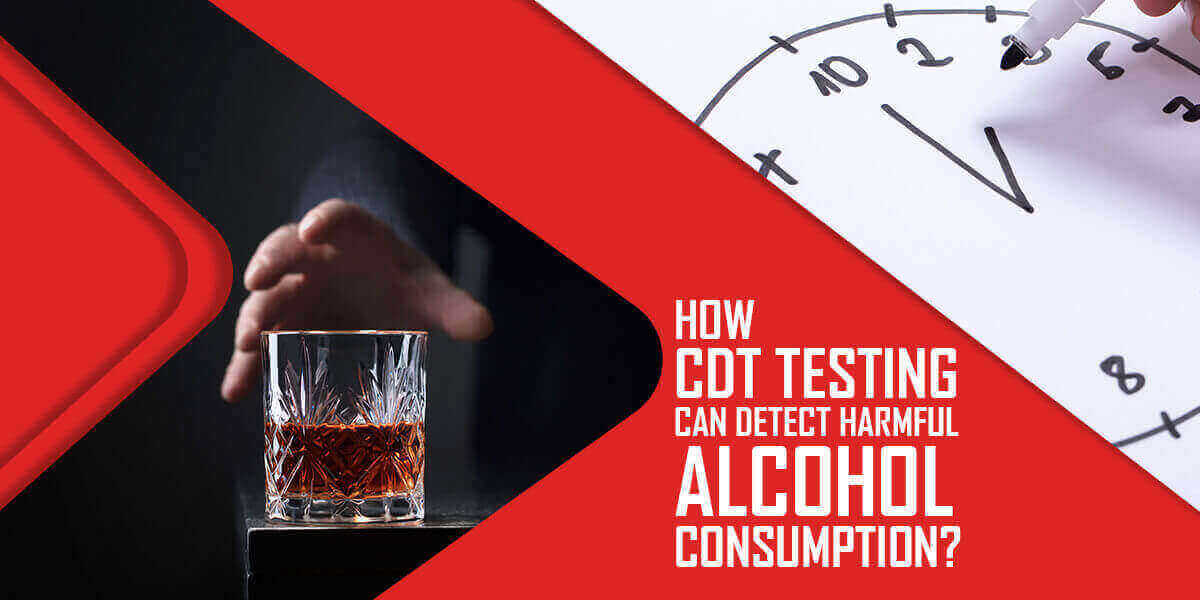Many people have a habit of drinking. As long as you are a social drinker, it is alright. But the moment you start drinking beyond the limit, things go out of hand. As a result, with time, you become an addict. Alcohol can damage your body severely. People with alcohol addiction experience organ damage and several other health issues that force them to move away from the mainstream of life.
But how will you understand if a person is an addict? Well, when healthcare providers or doctors diagnose alcohol addicts, they undergo some tests. In general, there are three main tests on which doctors rely for testing heavy drinkers. These are as follows:
- Traditional brief screening
- The blood alcohol concentration test (BAC)
- The carbohydrate-deficient transferrin test (CDT)
Of all three measures, the doctors do not rely completely on the traditional brief screening. This is because this method does not produce accurate results. Coming to the BAC method of testing, measures the amount of alcohol that is present in your bloodstream currently. On the other hand, in CDT testing, the lab practitioners use biomarkers to learn about the recent consumption of alcohol and its quantity present in the body.
Since CDT is a better way of testing, doctors rely on it much more than any other process. Today, we will discuss how the CDT test detects harmful alcohol consumption. Therefore, without further delay, let’s get into the details of the blog.
What is a CDT blood test?
A private CDT test is done to measure the amount of CDT in the bloodstream. CDT is known as carbohydrate-deficient transferrin. It is a body substance that is responsible for carrying iron to the liver, bone marrow and spleen. So, when a person drinks alcohol heavily, the CDT of their body rises to a level that shows in the blood sample. This sudden increase in the level of alcohol in the body is known as the biomarker.
The workings of a CDT test
When you have decided to get a CDT blood test private, it is imperative for you to learn about the working of the test. Generally, people who drink less or do not cross the limit have lower CDT levels in their blood compared to those who are heavy drinkers. In some CDT tests, you will find a cut-off percentage of less than 1.7%. Those people who drink five days a week with four or five glasses of drink daily have a higher CDT than others.
If you are a heavy drinker, we suggest you undergo the CDT test as it provides a more accurate result than any other test. There is a similarity between the CDT test and the A1C blood test. In both cases, you will get the results for the last three months. In a CDT test, you will see the total alcohol consumption for the last 90 days. Now, as soon as you quit the drinking habit, your CDT level in the blood goes back to the normal range automatically. Likewise, if you resume drinking again, the CDT rises further.
Purpose of CDT testing
The primary purpose of getting a CDT tested by a professional healthcare provider is to ensure your drinking habits. However, if you have to get accurate results, make sure to conduct the test from a reputed and reliable diagnostic centre. Often, many people wonder and ask where can I get a CDT blood test done. We recommend you pick a lab that has the experience, experience, state-of-art tools and above all a good reputation. People who drink more have a tendency to deny their habit of alcohol. You can only rely on the self-report if you notice that the addict is trying hard to minimize his habit of alcohol consumption. In cases like these, CDT testing is appropriate.
There are some medical conditions that when comes in contact with alcohol consumption, produces adverse impact. People suffering from hepatitis B, diabetes, high blood pressure, or liver issues should never indulge in drinking. A study conducted years back with 799 human samples inferred that most of them reacted negatively to alcohol consumption. In this study, 15% of the people were sufferers of high blood pressure while 9% of them had diabetes. From this inference, it can be rightly said that several people with related medical conditions should never consume alcohol for the betterment of their health.
Another consideration that needs special mention here is prescription drugs and over-the-counter medications. Often, people take some medications for their health issues which when combined with alcohol, produce negative results. Generally, people who consume sleeping pills, sedatives and painkillers should stay away from alcohol completely. Drinking alcohol can affect the central nervous system. As a result, they may lose body balance.
Recovery process
The CDT testing not just measures the amount or quantity of alcohol consumed in the past 90 days. Besides, it also measures the abstinence and relapse of alcohol in a person. In short, it can be rightly said that the test is accurate and powerful enough to point out the rise and fall of alcohol consumption in a person. Sometimes, doctors make use of the CDT testing report to understand the baseline level, especially when they are heavy alcohol addicts. In the following weeks and months, the doctor keeps an eye on the CDT testing report to ensure if the person is relapsing into the addiction or following soberness.
How accurate is the CDT test?
Researchers have found that the CDT test is highly effective, especially for people who are heavy drunkards. However, this test is not full-proof. If you have to confirm the results of the test, you have two other options at hand. They are the ethyl glucuronide test and the gamma-glutamyl transpeptidase test.
Conclusion
Indeed, alcohol consumption is certainly not a healthy practice. As long as you are a social drinker, it is fine. But the moment you cross the line, you are causing damage to your health. The damage caused by alcohol is internal and that is why it is considered more dangerous than the others.




